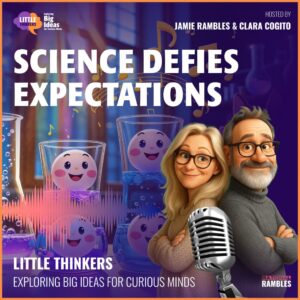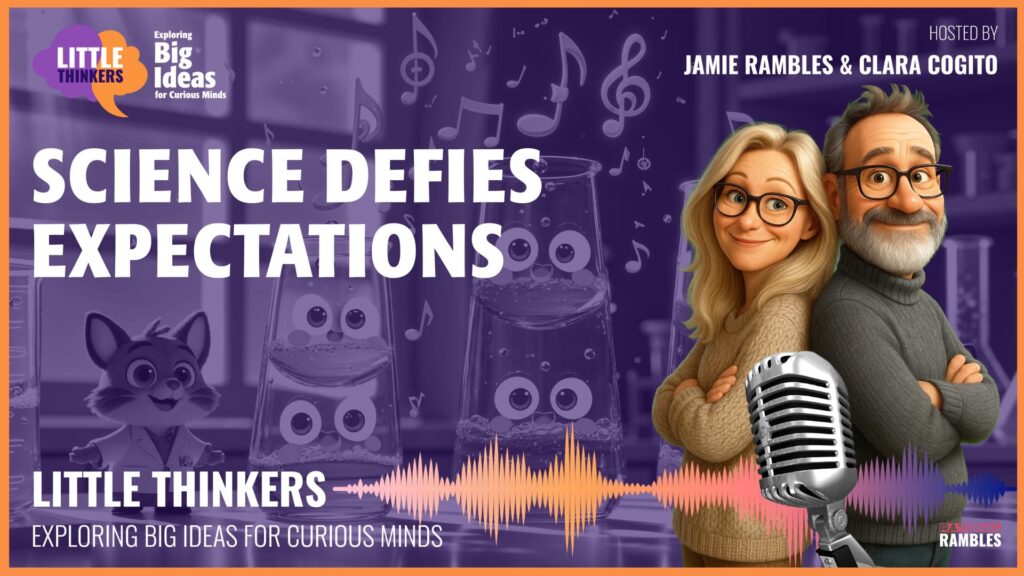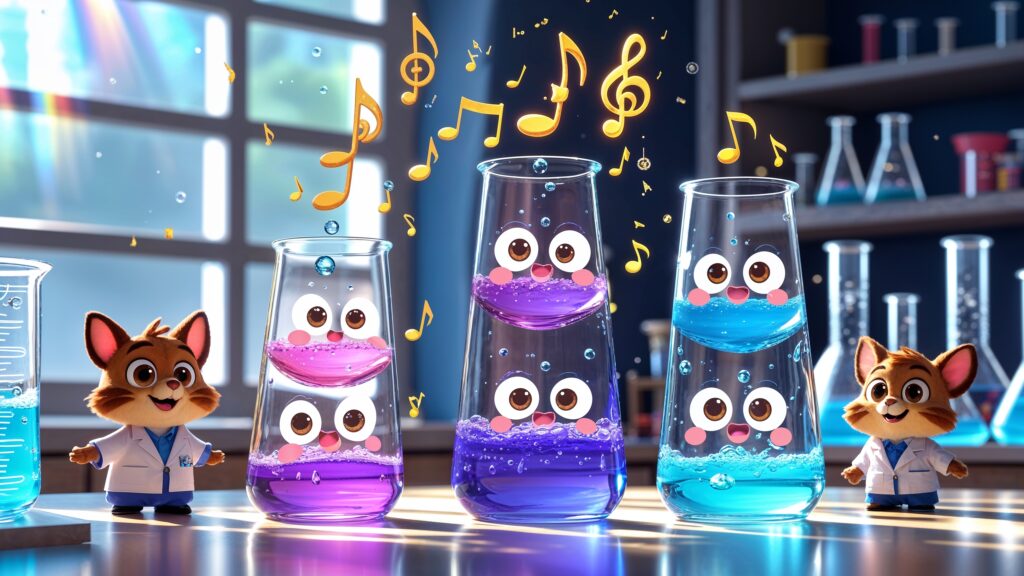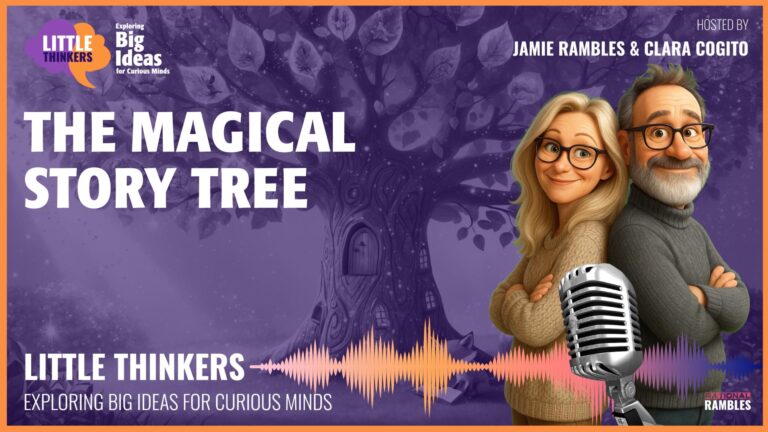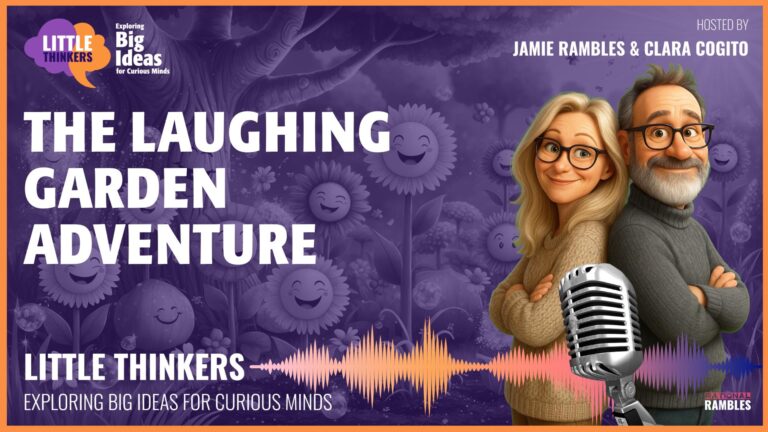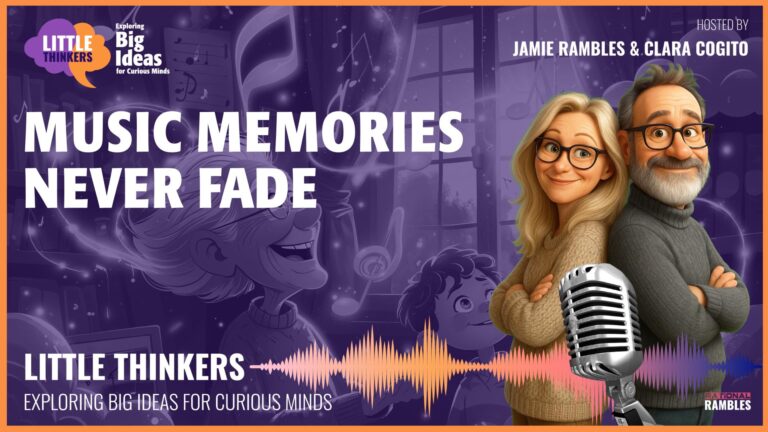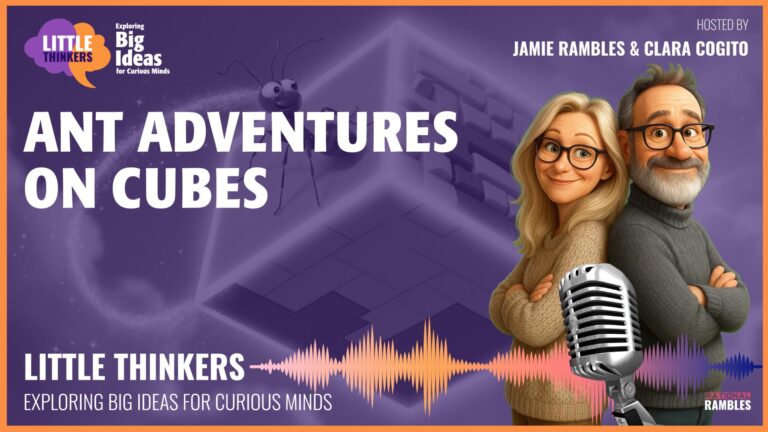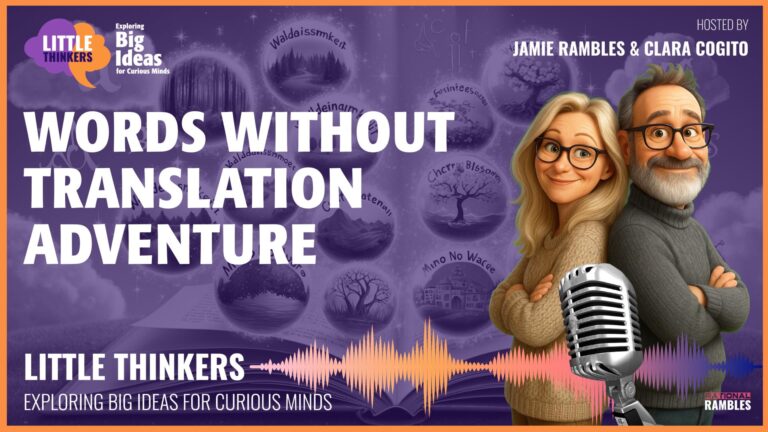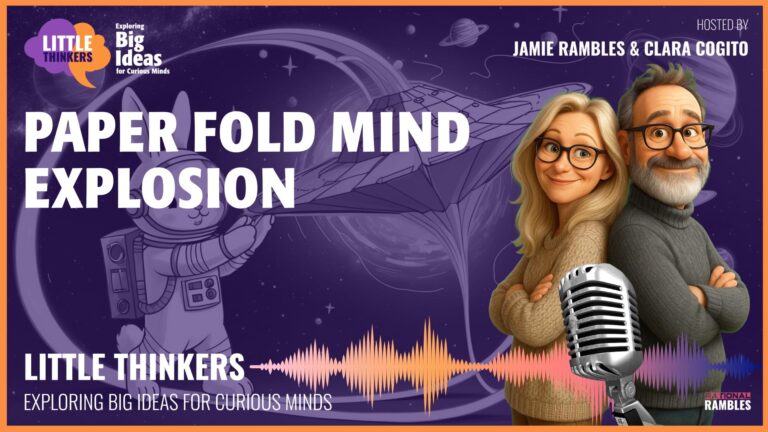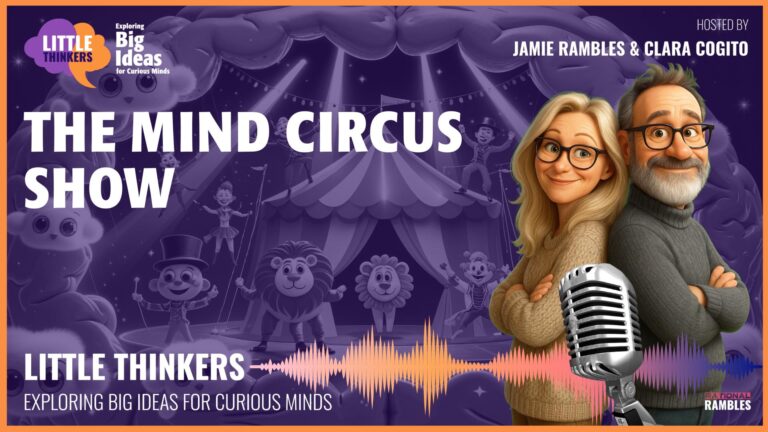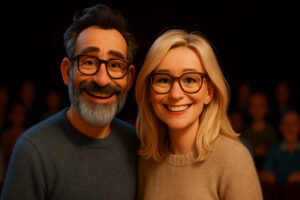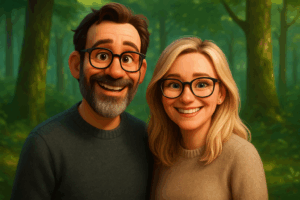When Science Goes “WOW!”: Amazing Surprises That Boggle Your Brain
Science Is Full of Wonderful Surprises!
Have you ever been TOTALLY sure about something, and then discovered you were wrong? Maybe you were certain your missing toy was under your bed, but it was actually in your backpack all along! Science works like that too! Sometimes what we think will happen is completely different from what actually happens – and that’s when things get REALLY exciting!
In this article, we’re going to explore some mind-boggling science surprises that might make your jaw drop. Get ready for some “NO WAY!” moments that will make you see the world differently!
The Mystery of the Water Glass Orchestra
Let’s try a fun experiment in our minds. Imagine you have two water glasses in front of you. One glass is half-full of water, and the other has just a tiny bit of water – only about a quarter full.
Now, if you tap these glasses with your finger to make them ring like bells, which one do you think will make a higher sound? The one with more water or the one with less water?
Many people think the glass with more water will make a higher sound. Does that seem right to you?
Well, here comes the surprise – it’s actually the opposite! The glass with LESS water makes a HIGHER sound (like “TING!”), and the glass with MORE water makes a LOWER sound (like “TONG!”).
But why? That’s weird!
Think about being on a playground swing. What happens if someone puts a heavy backpack on you while you’re swinging? You’d swing slower, right? The extra weight slows you down!
The same thing happens with the water glasses. The water acts like a heavy backpack on the glass. When you tap a glass, it vibrates (wiggles very fast). With more water weighing it down, the glass vibrates slower, making a lower sound. The glass with less water can vibrate faster because it’s carrying less water-weight, making a higher pitch!
Scientists call this frequency – how fast something vibrates. More vibrations per second means higher sounds, fewer vibrations means lower sounds.
Guitar Strings Tell the Same Story
Have you ever looked closely at a guitar? The strings are different thicknesses. The skinny strings make high, twangy sounds, while the thick, heavy strings make deep, boomy sounds.
This is the exact same science as our water glasses! The skinny strings can wiggle super fast (high frequency), making high pitches. The thick strings are heavier and move slower (low frequency), making lower sounds.
Try this at home!
With a grown-up’s help, you can make your own water glass orchestra! Get several identical glasses and fill them with different amounts of water. Tap them gently with a spoon and listen to the different notes they make. You can even play simple songs!
When Our Brains Play Tricks On Us
Why did so many of us think the fuller glass would make a higher sound? It’s because our brains make quick guesses based on what we’ve seen before. We call these quick guesses intuition (in-too-ish-un) – it’s like your brain’s first answer before it really thinks about the question.
Sometimes our intuition is right, but sometimes – SURPRISE! – it’s completely wrong. And that’s actually a good thing! When something surprises us, it means we’re about to learn something new and exciting!
Did you know?
Albert Einstein, one of the smartest scientists ever, once said that curiosity is more important than knowledge! Being wrong sometimes is actually GOOD because it means we’re curious and trying to figure things out!
The Amazing Falling Objects Mystery
Here’s another mind-blowing science surprise: Which do you think falls faster – a heavy bowling ball or a light ping pong ball?
Most people say the bowling ball, because it’s heavier. That seems to make sense, right? Heavy things fall faster than light things – we see it all the time!
But here comes the science shocker: If there was no air (like on the Moon), they would fall at EXACTLY the same speed! BONK! Both hitting the ground together!
The Moon Experiment
Astronauts actually tested this on the Moon! They dropped a feather and a hammer at the same time, and guess what? They hit the ground at the exact same moment! WOW!
So why do heavy things seem to fall faster on Earth? It’s because of air! Air gets in the way of things falling. It’s like trying to run through a swimming pool – the water slows you down! Air slows down light things (like feathers or ping pong balls) more than heavy things. But with no air, gravity pulls everything at exactly the same speed!
The Temperature Trick: Cold Metal and Warm Wood
Try this quick experiment: Touch a metal spoon and a wooden spoon that have been sitting in the same room for hours. The metal feels colder, doesn’t it? But here’s the amazing science truth: they’re actually the SAME temperature!
So why does the metal feel colder? Is your hand playing tricks on you?
Metal is a heat thief! It steals heat from your warm hand really fast, which makes your hand feel cold. Wood is a heat bodyguard – it doesn’t let heat move easily. So your hand stays warmer when touching wood!
Science at work in your kitchen!
This is why cooking pots are made of metal (to steal heat from the stove and give it to your food quickly), but pot handles are often made of wood or plastic (so they don’t steal heat from the stove and burn your hands)!
Become a Science Detective!
Scientists are like detectives looking for clues about how the world REALLY works, not just how it SEEMS to work. And their most important detective tool isn’t a magnifying glass – it’s being willing to be WRONG and then learn from it!
You can be a science detective too! The next time something happens that surprises you, instead of thinking “That’s weird!” try thinking “That’s interesting! Why did that happen?” Then you can try to solve the mystery!
Science detective questions you can investigate:
- Why does a ball bounce higher on a hard floor than on carpet?
- Why does ice cream melt faster in your hand than in a bowl?
- Why do puddles disappear on sunny days?
- Why does your voice sound different in the shower?
- Why does toast always seem to land butter-side down when you drop it?
Science is Like Magic with Explanations!
Science surprises are like getting wonderful surprise presents for your brain! Every time something surprises you, it’s not your brain being silly – it’s a chance to discover something amazing about our incredible world!
The more we learn about science, the more we realize that the world is even cooler and more interesting than we thought!
What Will You Discover?
What surprised you the most in this article? The water glasses, the falling objects, or the temperature tricks? Which experiment would you like to try at home?
Remember – the next time something strange or unexpected happens, be a science detective! Ask questions, make guesses, and test your ideas! The world is full of wonderful mysteries waiting for YOU to solve!
And always remember: Being surprised just means you’re about to learn something AWESOME!


